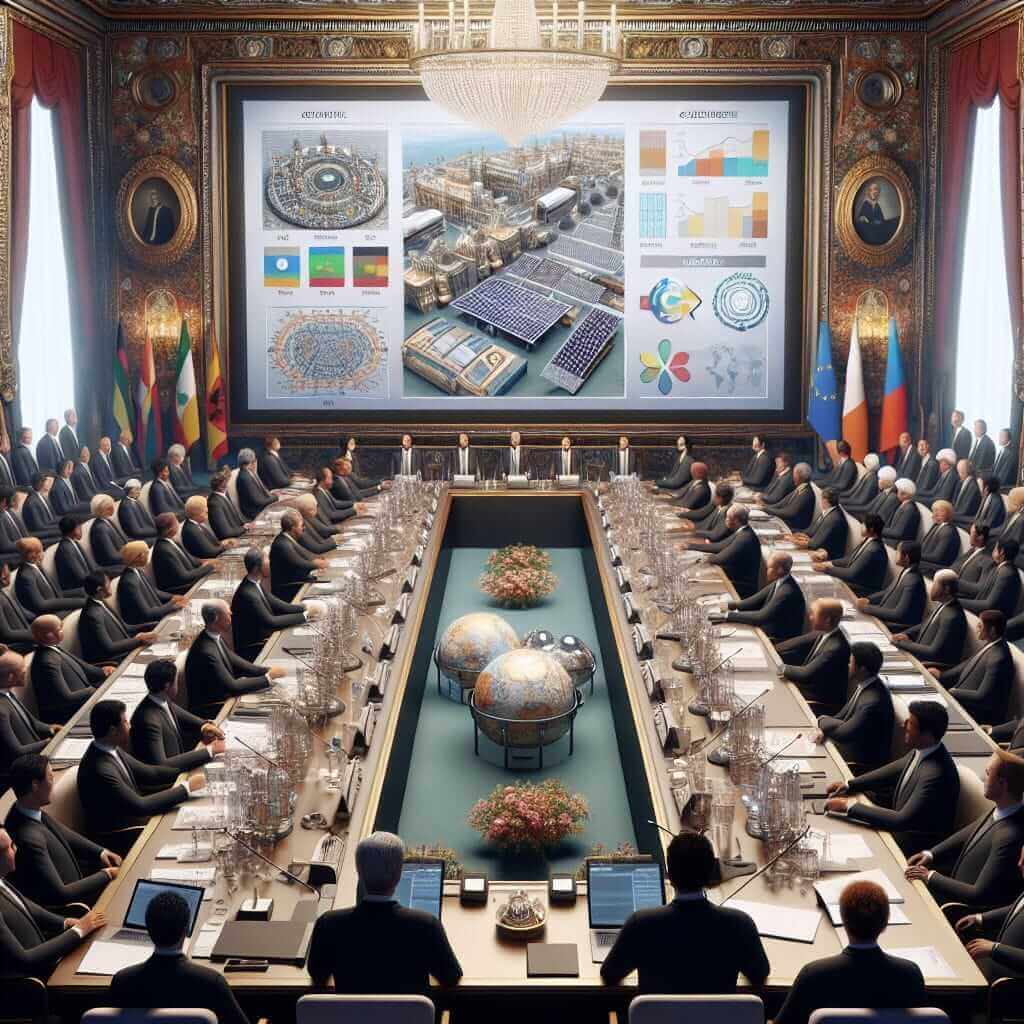The IELTS Reading test is a crucial part of the IELTS exam, assessing your ability to read and understand passages of various difficulties. A common topic that may appear in the Reading section is the impact of renewable energy on international relations. This is a timely subject, given the growing global focus on sustainability and energy independence. Understanding this topic not only helps you in the Reading test but also enhances your knowledge on current global issues.
Historically, topics involving energy and international relations have appeared in previous IELTS exams, making this theme a likely candidate for future tests. By delving into this topic, you will be better prepared to handle similar passages in your IELTS examination.
Main Content
Mock Reading Passage: The Effects of Renewable Energy on International Relations
Difficulty Level: Medium
Renewable energy has become a focal point in international relations, altering geopolitical dynamics and fostering new alliances and rivalries. As countries transition from fossil fuels to renewable sources like solar, wind, and hydroelectric power, a reshaping of global power structures ensues.
Traditionally, energy politics have been dominated by a few oil-rich nations, whose vast reserves granted them significant geopolitical influence. However, the rise of renewable energy is decentralizing this power. Countries that were once heavily reliant on imported fossil fuels are now investing in domestic renewable energy infrastructure, amplifying their energy security and reducing their dependence on foreign energy supplies.
Moreover, the global push towards reducing carbon emissions has led to international cooperation and agreements, such as the Paris Agreement. These agreements encourage countries to collaborate in the development and dissemination of renewable energy technologies. Yet, this transition also sparks competition, as nations vie to lead in the renewable energy sector, aiming to become major exporters of green technologies and expertise.
In addition to energy security and economic benefits, renewable energy sources have the potential to mitigate conflicts driven by fossil fuel scarcity. Renewable technologies are less susceptible to geographic limitations, allowing a broader range of countries to harness their own energy resources.
However, challenges remain. The initial high investment costs and technological barriers can be prohibitive for developing nations. Consequently, wealthier countries and international bodies must play a supportive role, ensuring that the advantages of renewable energy are globally accessible.
In summary, the advent of renewable energy is reshaping international relations by fostering energy independence, reducing geopolitical tensions, and paving the way for new forms of international cooperation and competition.

Questions
Multiple Choice
-
According to the passage, how has renewable energy affected traditional energy politics?
a) It has increased the influence of oil-rich nations.
b) It has decentralized power away from oil-rich nations.
c) It has kept the status quo of energy politics intact.
d) It has made fossil fuels more essential. -
Why might renewable energy sources reduce conflicts related to energy scarcity?
a) They are less geographically constrained.
b) They are cheaper to produce.
c) They are controlled by a few powerful nations.
d) They produce more energy than fossil fuels.
True/False/Not Given
-
The Paris Agreement aims to facilitate the transition to renewable energy.
- True
- False
- Not Given
-
Developing nations have an easier time with the initial investment for renewable energy.
- True
- False
- Not Given
Matching Information
-
Match the statement with the paragraph:
a) The role of international agreements in renewable energy development.
b) The decentralized nature of renewable energy resources.
c) The competition among nations in the renewable sector.- Paragraph 1:
- Paragraph 2:
- Paragraph 3:
Answer Keys
-
b) It has decentralized power away from oil-rich nations.
- Explanation: The passage mentions that renewable energy is decentralizing power away from traditional energy politics dominated by oil-rich nations.
-
a) They are less geographically constrained.
- Explanation: Renewable technologies are less susceptible to geographic limitations, which helps reduce conflicts driven by fossil fuel scarcity.
-
True
- Explanation: The passage states that agreements like the Paris Agreement encourage countries to work together in developing renewable energy technologies.
-
False
- Explanation: The passage mentions that the initial high investment costs and technological barriers are prohibitive for developing nations.
-
- a) Paragraph 2
- b) Paragraph 4
- c) Paragraph 3
Common Mistakes
- Misinterpreting the passage’s stance on geopolitical changes due to renewable energy.
- Confusing details about international cooperation and competition.
- Overlooking specific phrases that indicate the implications for developing nations.
Vocabulary
- Geopolitics (n) /ˌdʒiːoʊˈpɑːlɪtɪks/: The study of the effects of geography on international politics and relations.
- Decentralizing (v) /diːˈsɛntrəlaɪzɪŋ/: The process of redistributing functions, powers, people, or things away from a central location or authority.
- Scarcity (n) /ˈskɛrsəti/: The state of being scarce or in short supply; shortage.
- Mitigate (v) /ˈmɪtɪɡeɪt/: To make less severe, serious, or painful.
- Technological barriers (n) /tɛkˈnɒlədʒɪkəl ˈbærɪərz/: Obstacles related to technology that prevent advancements or implementation.
Grammar Point
Subjunctive Mood
- Used to express wishes, suggestions, or hypothetical situations.
- Structure:
- Present: “It is essential that she be informed.”
- Past: “If I were you, I would consider switching to renewable energy.”
Example:
- The Paris Agreement demands that every country reduce their carbon emissions.
- If renewable energy were more affordable, it would be adopted more widely.
Tips for Achieving a High Band Score in the Reading Section
- Practice Regularly: Read articles, journals, and academic papers on various subjects to build your reading skills.
- Understand Question Types: Familiarize yourself with different types of questions in the IELTS Reading section.
- Time Management: Learn to skim and scan quickly to save time for more challenging questions.
- Expand Your Vocabulary: Knowing a wide range of academic and contextual vocabulary can help you understand passages better.
- Stay Updated: Read about current global issues, as they are often the basis of reading passages.
With these practices and by engaging with mock passages like the one provided, you’ll be well-prepared to tackle the IELTS Reading test with confidence.